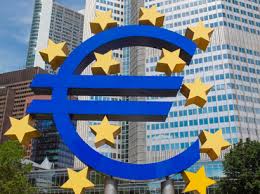
The European Central Bank (ECB) is the central bank of the countries of the European Union. Since it was founded in 1998, with the Treaty of Amsterdam, it has been responsible for the monetary policy of the European Union. The main function of the ECB is to maintain price stability in the euro area, control inflation, with the aim of preserving the purchasing power of the euro.
Ultimately, the ECB is also responsible for achieving greater financial integration within the eurozone and preserving financial stability.
The functions of the European central bank include:- Defining and implementing monetary policy for the eurozone.
- Conducting foreign exchange operations.
- Holding and managing the official foreign exchange reserves of the member countries of the euro zone.
- Promoting the proper functioning of payment systems.
- To authorize the issuance of banknotes in the euro zone.
- To collect the statistical information necessary to carry out the tasks of the ESCB.
- Financial stability and supervision.
- European and international cooperation.
Related terms
Monetary policy | Inflation | Euro Zone